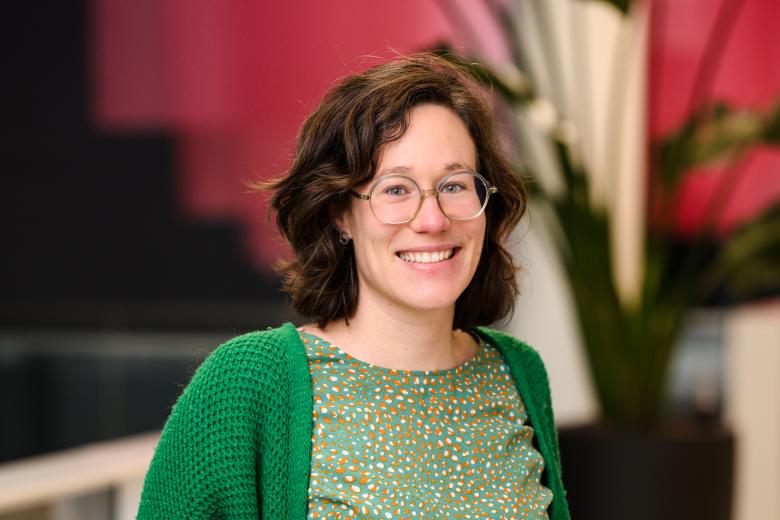Why UM is committed to its international strategy
This summer, the Netherlands Lower House of Parliament is due to debate the internationalisation and language policy in higher education. The issue has triggered widespread media coverage, often lacking any basis in fact, including reports about the extensive English-language study programmes on offer at our university. The association 'Beter Onderwijs Nederland' has even announced that it’s taking Maastricht University (UM) to court for violating Dutch legal regulations. Within this context, the UM Executive Board would like to share its vision on these developments.
We are committed to our mission...
The internationalisation of UM is the outcome of a long-term process and a careful strategy that is well embedded in the region. We see no reason to change course and will stick to our strategy: providing high-quality education and research, partly in response to the needs of our environment. We do this by offering Dutch-language programmes as well as English-language programmes within the context of the 'International Classroom', the latter if there are good reasons for doing so.
... with a focus on a more controlled international influx
However, following consultation of its members including UM, the Association of Universities in the Netherlands (VSNU) has asked the Education Minister to provide Dutch universities with more tools to take stronger control of the influx of international students. Attention should be given to issues such as language selection, housing, accessibility and inclusivity. Such instruments can help us in our long-standing drive to achieve a balanced student population in all our studies.
… and an eye for the need for talent in the Euregion
Our location in the Euregion makes us an international university by definition. We find it important to keep an eye on the need for talent within the Euregion and in particular within Brightlands. The Limburg economy is growing fast and the region has a very low unemployment rate. Without a proper influx of foreign talent, the economic engine will soon grind to a halt. This applies to the Netherlands (as borne out by a study by employers’ organisation VNO-NCW) and it certainly applies to a border area such as ours.
Internationalisation, with a view to the future
We can rightly say that UM has been an international university for twenty years. We have been working in our 'International Classroom' for many years, with students from different nationalities working on international themes in small groups. For example in study programmes such as European Law School, European Studies, European Public Health, International Business and other programmes. Our international staff impart knowledge and skills, creating an ideal learning environment for the generation that will shape our future.
Dutch students also consciously choose an international study environment
Experience and research show that these students make a conscious decision in favour of a learning environment that prepares them for a labour market that is becoming more and more international, both within the Netherlands and abroad. In recent years, UM has seen a rising number of Dutch students; they are attracted by our international study environment. This has a positive impact on their study results, which demonstrably improve within an international context.
Our language choice is always well-considered
When it comes to choosing a language for our study programmes, we make careful considerations and quality always comes first. We place high demands on our Dutch-language study programmes with regard to the content, the educational process, the supervision and the relationship between these quality aspects. This is no different for our English-language study programmes. We always take the context of the programmes and the future labour market prospects of our graduates into account. If the choice is in favour of English, it means that our students, who currently come from more than one hundred countries, can learn and interact together in our 'International Classroom'. UM students highly value our language policy. The English-language skills of our staff and students are also praised (see the NSE findings).
Internationalisation - there’s simply no other option in this day and age
Finally, the contemporary world of science has become international by definition. Dutch universities score high on international rankings, partly thanks to their international staff and international networks. Recently published pioneering research on embryo models would never have been possible without the collaboration of international scientists willing to connect with a top-level scientific institute like ours; an institute working within an international context, focusing on fundamental and applied research and training people for a labour market that is increasingly internationally-oriented.
The Executive Board is going to fight for this well-founded strategy and is confident about the future.
Also read
-
Aurélie Carlier receives Athena Award
Aurélie Carlier receives the Athena Award. This award is for exceptional female researchers who serve as role models through their successful scientific careers.
-
Despite a less tight labour market no end to shortages in healthcare, education, and tech
Interesting new findings in the report 'The Labour Market by Education and Occupation until 2030' from the Research Centre for Education and the Labour Market (ROA) at Maastricht University.
-
Protecting children’s rights in non-existent states
What happens to the universal rights of a child when their home is a “de-facto” state—a political entity that has all the hallmarks of nationhood, yet is not officially recognised? And who bears legal and moral responsibility for these children when war breaks out? These issues lie at the heart of the...